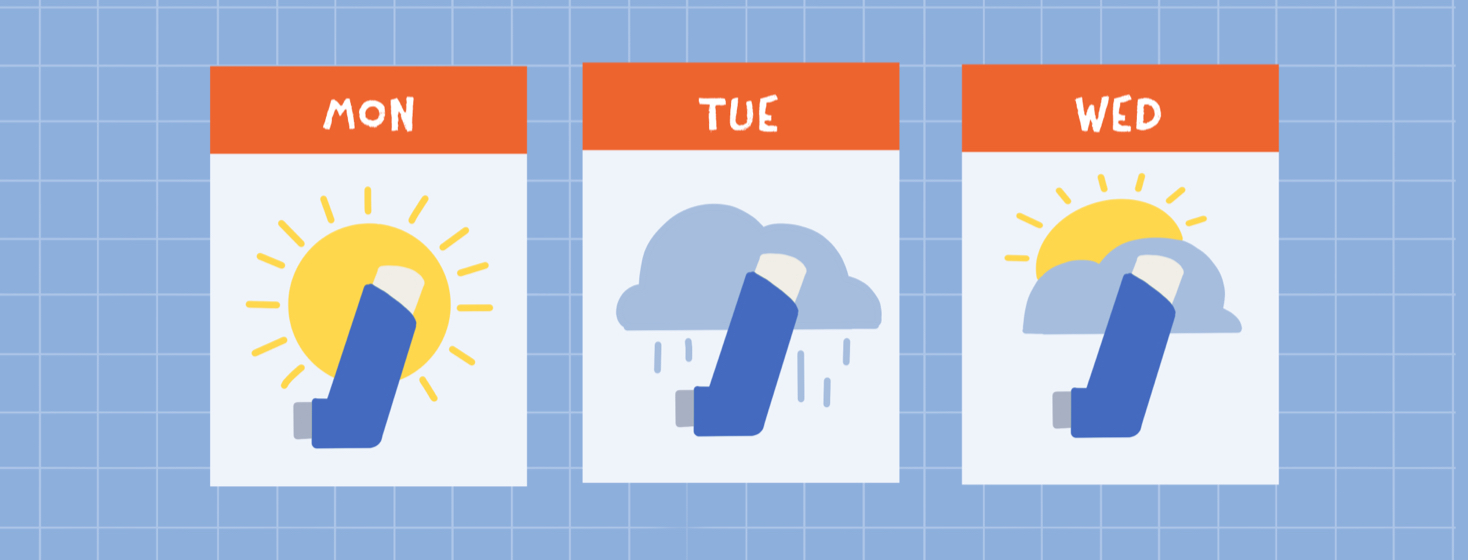Temperatures and Asthma Temperament
Living in Southern Indiana, I am no stranger to weather changes. Earlier this spring, all in the course of a week we experienced severe thunderstorms, a frost advisory, and temperatures in the 80s. Just when we get used to the weather, it changes; Ohio Valley living has you constantly straddling shorts and winter coats, regardless of the month.
What is the common theme?
It seems that every time the weather drastically alters itself, I end up with an asthma flare. It never fails - every October I land in the hospital for a few days, usually around the exact same time as the year before. The past few years have also brought some spring-time admissions, leading me to ask, "What is the common theme here?" My thoughts initially went straight to allergies, as spring (and even fall) in Southern Indiana are notoriously difficult for the allergically challenged; there is pretty much an allergist or ENT anywhere you turn, and you can always find someone with an antihistamine to the rescue. But that still failed to answer my question, as this year I was even in bad shape in January and February when our devices were not blowing up with allergy alerts.
Weather changes and asthma flares
So what is it about weather changes that seem to trigger my asthma to flare? If it isn't pollen, who is the culprit?
Mold
Doing a little deep diving, there are lots of things that could be blamed. Pollen definitely could serve as a contributing factor in our prime allergy seasons, but let's not forget about mold. Spending more time indoors during the colder weather could lead to more exposure to mold and mildew. For individuals with mold allergies, breathing in the spores can lead to the triggering of asthma flare-ups. 2
Cold temperatures
Another culprit when the weather is colder is just that - cold weather. Lower temperatures lead to drier, colder air, which in and of itself irritates the respiratory system and can prompt asthma symptoms. Sometimes it seems like asthmatics just can't win - triggers are around us in every season! Whether it is springtime allergens, summer heat advisories, or mold and cold air in fall and winter, there is always something that seems to make breathing more challenging. 1
Those answers still don't resolve my original question though. When the weather is getting moody (a regular occurrence in my neck of the woods) so are my lungs. I know I am not alone in this; usually when I am flaring up, so are a lot of the asthmatics around me. Besides pollen, mold, and cold air, what else could lead to my increased symptoms?
Could barometric pressure changes impact my asthma?
My school nurse once told me that she thought the barometric pressure could be a contributing factor. Being the nerd that I am, I decided to look into this a little further. NOAA details how the barometric pressure changes with different weather events; for example, the barometric pressure rises with frost (e.g. colder weather) and falls with very hot temperatures. If the change in pressure really initiates asthma symptoms, that sure could explain how these very temperamental demonstrations of weather in the Ohio Valley prompt asthma sufferers to suffer even more.3
Keeping an eye on my asthma...and the weather
I am not a medical professional and definitely not well-versed in weather, but I have lived experience. Watching the forecast gives me the opportunity to prepare ahead of time for what might land me in an asthma flare, depending on how much my surroundings are fluctuating. Though there is not much I can do to control the weather, as the common phrase goes around here, "If you don't like the weather, just wait until tomorrow and it will be different!"
Have you noticed that your asthma is impacted by temperature fluctuations or weather changes? Share your story by clicking the button below!

Join the conversation